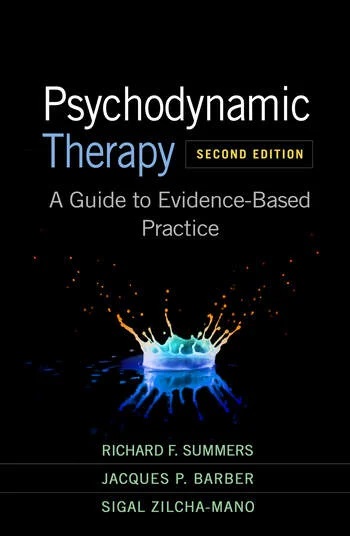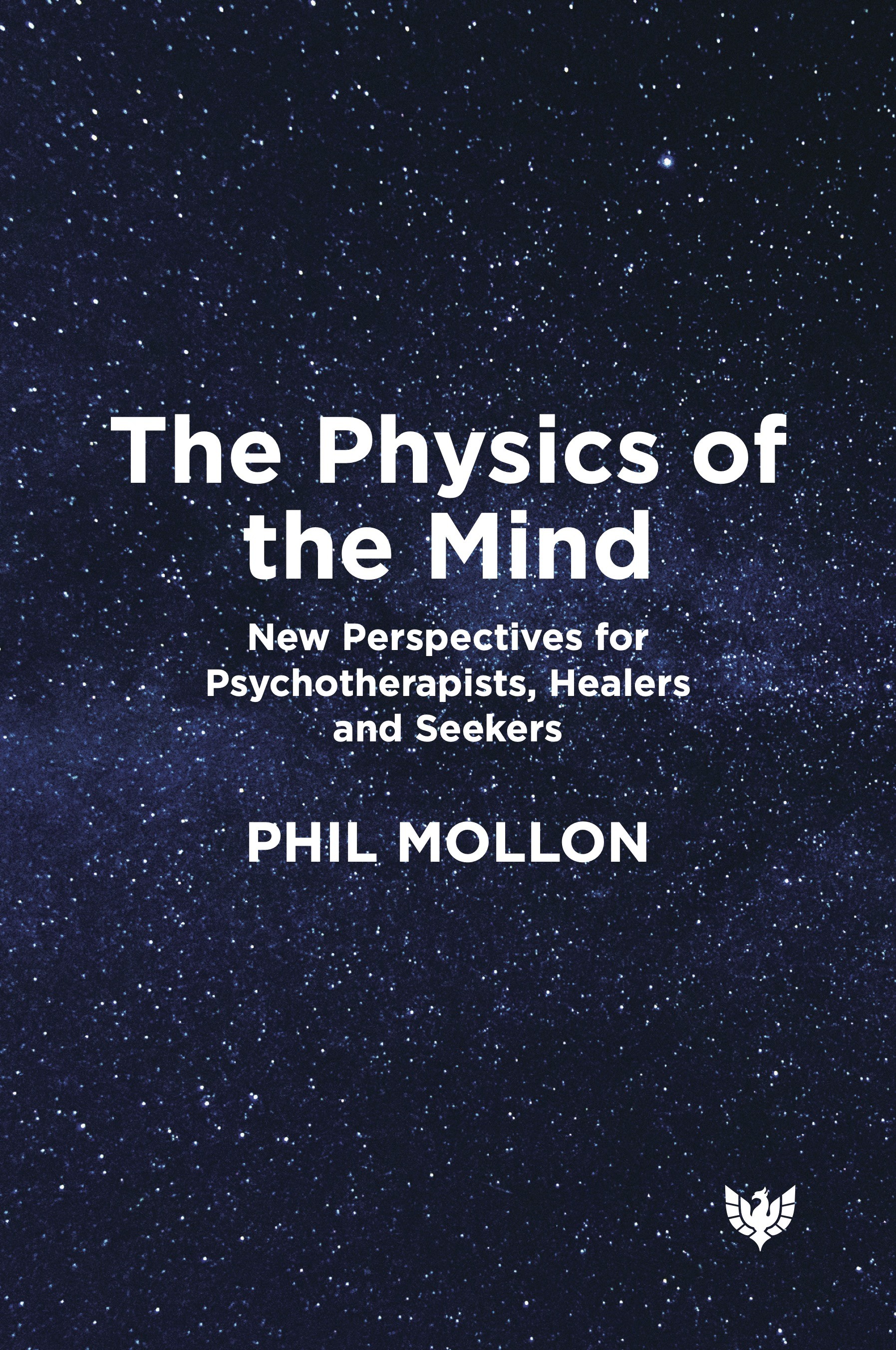Psychodynamic Therapy: A Guide to Evidence-Based Practice: Second Edition

Book Details
- Publisher : Guilford Press
- Published : May 2024
- Cover : Paperback
- Pages : 412
- Category :
Individual Psychotherapy - Catalogue No : 97704
- ISBN 13 : 9781462554072
- ISBN 10 : 1462554075
Also by Jacques P. Barber
Also by Richard F. Summers
Practicing Psychodynamic Therapy: A Casebook
Price £64.99
There are currently no reviews
Be the first to review
Firmly grounded in contemporary clinical practice and research, this pragmatic guide for professionals and students is now in a revised and expanded second edition. The book explains the theory underlying psychodynamic approaches and lays out a model for understanding psychopathology. Vivid case examples demonstrate how to tailor psychodynamic therapy effectively for individual patients. The authors provide a framework for diagnosing the patient’s core psychodynamic problem and engaging the most useful mechanisms of change, using an integrative approach. Special topics include remote and hybrid treatment, combining therapy with psychopharmacology, and working with couples and families.
New to this edition:
- Incorporates cutting-edge research on psychotherapy process and mechanisms of change.
- Chapter on telepsychotherapy, including clear recommendations for practice.
- More attention to the social determinants of health--the psychic effects of adversity and various forms of oppression.
- New and revised case examples, with diversity in age, gender, race, culture, and sexual identity.
Reviews and Endorsements
This book amply demonstrates the relevance of psychodynamic therapy in mental health practice today. The underlying concepts are fully explained and firmly rooted in the context of contemporary psychology. Look no further for a readable and well-informed account of current practice! The authors take readers by the hand, leading them chapter by chapter through the phases of contemporary psychodynamic treatment. Newcomers will learn about the distinctive features of the clinical relationship, the personalized nature of the approach, and how to implement treatment in their current practice, even if using telepsychotherapy; seasoned clinicians will be brought up to date on the core elements of contemporary psychodynamic therapy.
Anthony W. Bateman, FRCPsych, Visiting Professor, University College London, United Kingdom, and Copenhagen University, Denmark
Psychodynamic psychotherapy is a powerful clinical tool. This approach - and the evidence for its effectiveness - needs to be clearly introduced and articulated to new therapists and those who wish to broaden their skills. Summers, Barber, and Zilcha-Mano illuminate crucial therapeutic ideas and applications in this readable, clear book. Like the first edition, the second edition of this guide is certain to become a mainstay in psychotherapy curricula.
Barbara Milrod, MD, Department of Psychiatry and Behavioral Sciences, Albert Einstein College of Medicine
Trainees often ask for a book to help them organize their thinking and structure the treatment in psychodynamic psychotherapy. This book will gratify their wishes, with an approach that is both general and personalized. The book has the voice of a supervisor - kind, clear, honest, direct, and human. Varied, realistic case examples are accompanied by reflection questions that model how an experienced practitioner might think. The authors speak to the questions, fears, and decisions therapists face, making psychodynamic practice accessible and appealing without glossing over its complexity.
Jordan Bate, PhD, Ferkauf Graduate School of Psychology, Yeshiva University
This is among the very best books on practicing psychotherapy. The authors beautifully illustrate how to apply evidence-based principles to particular patients’ problems - the chapters on psychodynamic formulation, therapeutic focus, and building a personal story provide rich material for individualizing treatment. Therapists at all levels of training and from diverse theoretical perspectives will benefit from reading this excellent second edition.
George Silberschatz, PhD, Department of Psychiatry and Behavioral Sciences, University of California, San Francisco; President, San Francisco Psychotherapy Research Group
The second edition retains the superb descriptions of the major psychoanalytic models and psychodynamic approaches, along with illustrative clinical vignettes, that made the first edition so compelling. The book highlights modifications of traditional approaches that make psychodynamic psychotherapy applicable to a broader range of patients and increase its effectiveness. The second edition incorporates the expanding evidence base for psychodynamic therapy and includes cases with more diversity in age, race, gender, sexual orientation, and nationality. The new chapter on telepsychotherapy brings therapists up to date on the opportunities and challenges of this growing form of therapy and contains valuable clinical recommendations. This volume is essential reading for trainees and experienced mental health professionals.
Fredric N. Busch, MD, Department of Psychiatry, Weill Cornell Medical College, and faculty, Columbia University Center for Psychoanalytic Training and Research
Table of Contents
Introduction
I. Context
1. Why Dynamic Psychotherapy?
2. Pragmatic Psychodynamic Psychotherapy: Conceptual Model and Techniques
3. Psychodynamic Therapy and Other Therapies
II. Opening Phase
4. The Therapeutic Alliance: Goal, Task, and Bond
5. Core Psychodynamic Problems, Part I
6. Core Psychodynamic Problems, Part II
7. Psychodynamic Formulation
8. Defining a Focus and Setting Goals
III. Middle Phase
9. The Narrative: Building a Personal Story
10. Change
11. Therapeutic Moments: Emotions in Psychotherapy
12. Therapist Strengths, or Managing Your Countertransference
IV. Telepsychotherapy and Combining Treatments
13. Telepsychotherapy
14. Psychopharmacology and Psychotherapy
15. The Patient Is Part of a Family, with Ellen Berman
V. Ending
16. Goals and Termination
References
Index
About the Author(s)
Richard F. Summers, MD, ABPN, is Clinical Professor and Co-Director of Residency Training in the Department of Psychiatry at the Perelman School of Medicine of the University of Pennsylvania. He has written extensively on psychodynamic therapy, the therapeutic alliance, psychodynamic formulation, psychiatric education, and positive psychology, and is coauthor (with Jacques P. Barber) of Psychodynamic Therapy: A Guide to Evidence-Based Practice. Dr. Summers is the recipient of numerous national and local teaching awards, serves as Chair of the American Psychiatric Association Council on Medical Education and Lifelong Learning, and is a member of the Psychiatry Review Committee of the Accreditation Council for Graduate Medical Education. Past president of the American Association of Directors of Psychiatry Residency Training, he maintains an active clinical practice.
More titles by Richard F. Summers
Jacques P. Barber, PhD, ABPP, is Professor and Dean of the Derner Institute of Advanced Psychological Studies at Adelphi University. He is also Professor Emeritus of Psychology in the Department of Psychiatry at the Perelman School of Medicine of the University of Pennsylvania, Adjunct Professor of Psychiatry at New York University School of Medicine, and Adjunct Professor at the School of Psychology and Counseling, University of Queensland, Brisbane, Australia. His research focuses on the outcome and process of psychodynamic and cognitive therapies for depression, panic disorder, posttraumatic stress disorder, substance dependence, and personality disorders. He has published more than 180 papers, chapters and books in the field of psychotherapy and personality, including The Therapeutic Alliance: An Evidence-Based Guide to Practice, coedited with J. Christopher Muran. Dr. Barber is past president of the Society for Psychotherapy Research.
More titles by Jacques P. Barber
Sigal Zilcha-Mano, PhD, is Professor of Clinical Psychology at the University of Haifa, Israel, where she heads the Psychotherapy Research Lab in the Department of Psychology, She is Associate Editor of the Journal of Consulting and Clinical Psychology and serves on the editorial boards of eight other journals. Dr. Zilcha-Mano is a recipient of the Outstanding Early Career Achievement Award from the Society for Psychotherapy Research, the American Psychological Foundation/Division 29 Early Career Award, and the New Researcher Award from the Society for the Exploration of Psychotherapy Integration. She has published over 160 peer-reviewed research articles on psychodynamic psychotherapy and mechanisms of change.
Customer Reviews
Our customers have not yet reviewed this title. Be the first add your own review for this title.
You may also like
The Mind Movement: Integrating Body, Breath and Movement in Therapy
Lorna Evans
Price £22.49
save £2.50
The Physics of the Mind: New Perspectives for Psychotherapists, Healers and...
Phil Mollon
Price £26.09
save £2.90










